On 18 May earlier this year, the British Association of Cosmetic Nurses (BACN) published “Suggested Operational Plan Guidelines for Covid-19 Reintegration of Medical Aesthetic Services”. Their advice is intended to be considered in conjunction with evolving government guidance, and our own in-house protocols and assessments.
BACN’s publication details every area of potential concern and confusion including maintaining hygiene standards, correct PPE, disinfection, a Covid-19 questionnaire for clients to complete on arrival, suggestions for how to handle aftercare forms, payments as well as advice for non-surgical treatment, surgical treatment and other anti-ageing treatments in the post-Covid-19 clinic.
Safe anti-ageing treatments and other surgical practices post-Covid-19
Due to the nature of our treatments (working with the skin and mucous membranes) and the way in which Covid-19 is spread, a vigilant approach is essential. Risk assessments need to be completed for each treatment and each client. Immediate adjustments can be made such as reducing the number of staff present in the treatment room as much as possible and designing low contact protocols for visits.
Establishing whether a procedure is aerosol-generating or non-aerosol generating is crucial. The location of the procedure is important, too. Is there any contact with Mucosa? Can our client wear a mask? How long is the treatment expected to last? Other guidance detailed by BACS suggests reducing the number of procedures permitted per appointment.
High-risk anti-ageing surgical practices
Some of our procedures are considered too high risk in the post-Covid19 clinic. BACN suggests any procedure that produces aerosol, a plume or spray be suspended. Covid-19 is spread through airborne droplets and the risk to health is too great at this time for these high-risk treatments to continue.
We must also consider the possibility of a delayed reaction to a facial hyaluronic acid injection may be triggered by “an influenza-like illness”. Our care and attention to detail will make all the difference. Clinics are also advised to confirm with their medical insurance provider that they are insured to offer anti-ageing treatments, non-surgical treatments and surgical practices at this time.
The British Association of Plastic Reconstructive and Aesthetic Surgeons (BAPRAS) has gathered guidance from a variety of recognised associations to help clinics navigate surgical practices post Covid-19 pandemic.
In addition to the multi-faceted link library available on their website, BAPRAS also offers a number of webinars to help clinics cope with the Covid-19 crisis.
Greg White, the Chief Executive for the British College of Aesthetic Medicine (BCAM) encouraged our industry to continue adapting and finding solutions in our post-pandemic workplace. BCAM members can read more about their Covid-19 approach in their published Covid-19 fact file.
Organisations around the world are sharing knowledge and innovation to help each other adjust to our ever-changing working conditions. Clinics are adapting to the post-Covid-19 parameters and delivering safety, excellence and continued wellbeing to every client. Our approach will continue to evolve in the months to come, in accordance with government and industry guidance.
